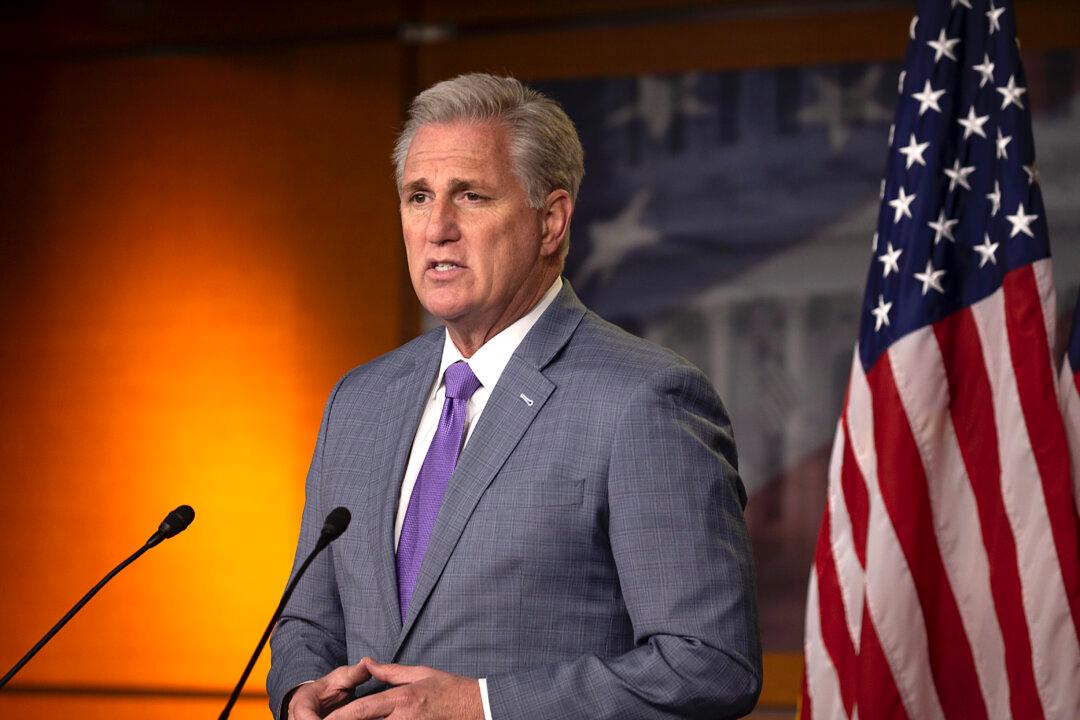House Minority Leader Kevin McCarthy (R-Calif.) said his party is going to introduce a motion to recommit in order to force Democrats to go on record to show if they support $140 million from the CCP (Chinese Communist Party) virus relief package going to Nancy Pelosi subway or instead to “resources for kids who are suffering from school closures because of COVID.”
“I'd like to announce today House Republicans will be introducing a motion to recommit that will bolster the resources families can access to help their children cope with the emotional effects of school closures,” McCarthy said during a weekly press conference Friday. “To do that, our proposal would shift the first 100 million—and now the extra 40 million that was added overnight—that was allocated to Nancy Pelosi subway to grants that would be used for mental health for children.”





